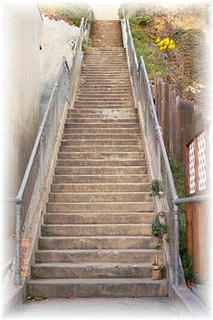
I don't believe in life after death.
I know, I know. Heretic. Before you start stacking cordwood for your Jack-flambee' though, hear me out.
Though I do not believe in life after death, I do believe in the resurrection of the dead. "What's the dif", you may ask. The difference is that the whole "life after death" thing requires that I leave my body upon death. That whole notion implies the very Greek and entirely unscriptural idea that "my body" and "me" are not the same, that my body is a prison from which I must escape if I am to experience existence as I was meant to. But if that is true, then I should seek to die as quickly as possible so that I can enter into the fullness of my existence. If being "stuck" in this body means I am barricaded from "real life", then Death is the friend that sets me free from my prison and should be welcomed as a liberator.
But Death is my enemy - a vanquished enemy, certainly - but an enemy nonetheless. I hate to draw attention to the obvious, but when we die, we quit living. Else what does it mean to say that we die? Death is The End, The Grand Finale, the Last Chapter, the Final Enemy.
Or at least that is what Death meant until Christ defeated it and broke its grip on mankind. The promise of Christ's resurrection is that though Death will claim us all at some point, Death will no longer have the last word.
Christ as the firstborn from among the dead has become the first fruits of the New Order of Creation; He is not a disembodied spirit but an embodied man. If Christ rose bodily from the dead, then we too shall be so raised. If Christ is now clothed in immortality then we too shall be so clothed.
But if that is so, what happens between the time of our death and the time of our resurrection? No one really knows, but I think we must simply cease to exist. We are dead. And though we are gone, we still maintain a kind of life in the memory of those who knew us on this earth. Those on earth who remember us after we are gone will not have known us perfectly, nor will they remember us perfectly, and - worse for us - they too will one day cease to exist.
But God knows us perfectly and will remember us perfectly.
He will raise us from the dead just as Christ Himself was raised.
The first time God imagined man, He made us from the dust of the ground and breathed the breath of life – His life - into us. The second time He creates us, He promises that the life He breathes into us will never end.
The ancient creed affirms the Christian belief in "...the resurrection of the body..." Paul reminded the early church that "if there is no resurrection of the dead, then we are to be pitied above all men". Christ appeared to the disciples after His resurrection and He made an explicit point of showing them that He was physically present. He was not just an ethereal concept or a substance-less spirit but a real person with real scars who ate real food. He occupied space, but was not constrained by space.
God seems to like the physical realm. He must get a charge out of His creation, or He wouldn't make such a big deal over it. When we treat death as if it were a friend and act as if this physical creation is somehow a lesser expression of God’s goodness than the spiritual realm, we are guilty of devaluing that which God highly values.
Life is good. Resurrection life will be even better.

